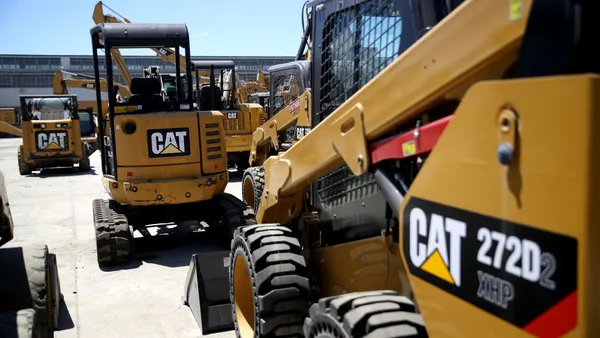Dive Brief:
- Global ride-hailing enterprise Uber says it plans to develop a short-term staffing service for its business partners, TechCrunch reported. Citing the Financial Times as the first source to report on Uber Works, the new services, TechCrunch said the company will provide on-demand 1099 independent contractors, such as security officers, waiters and other temp workers, to its business partners for functions and events.
- Uber had been working for several months on launching the project in Chicago, after a trial run in Los Angeles. TechCrunch said, however, that the company isn't including its vast number of current independent drivers in the new pilot program. Uber also is working on providing mobility services that include car rentals, bikes, scooters and links with public transit.
- TechCrunch said that Uber might be diversifying its business through Uber Works, the purchase of JUMP bike-share and other projects in preparation for its plans to take the business public next year.
Dive Insight:
Uber is one of the founders of the modern-day "gig economy," joining Lyft, TaskRabbit, Airbnb and other innovators and is one of the big employers of contract workers — but it is far from alone in testing such a business model.
Shiftgig, which HR Dive selected as its Innovator of the Year in 2017, matches hourly workers with immediate, real-time job openings. Uber is doing something similar by making contingent workers available for sudden, temporary job openings based on a businesss-to-business services model, as opposed to a business-to-consumer model. In a 2017 statement, Shiftgig CEO Wade Burgess said what surveys have shown: Scores of workers are open to joining; the gig economy, while more employers are becoming aware of this flexible employment paradigm's power.
A seriously low unemployment rate — and subsequent skills shortage — has many employers questioning their staffing models, especially as workers turn to the gig economy to make money. Employment experts consider the gig economy and automation as major disruptors in the way work is evolving and will be done in the future. Employers have been working to find innovative ways to make use of such disruptions, such as converting some permanent full-time jobs to contingent positions and training, reskilling and upskilling workers for jobs automation has created, hoping to remain agile and competitive in a volatile labor market.












